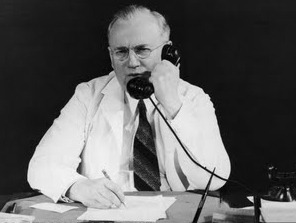
From a David Foster Wallace story:
"Firm Doctors Telephone Poles."
If you get it, you can stop reading here. If not, I'll help.
---------------------------------
When I first read that sentence, I saw "telephone" as the verb. Obviously doctors -- apparently those with a certain unwavering deliberativeness in their manner -- were calling Polish people on the phone.
It took awhile for the other way of reading it to occur to me. But "telephone poles" together could be the object of the sentence. Presumably, there are business entities somewhere that repair and maintain old and broken telephone poles. They "doctor" such poles.
Just thought it worth recording here.
There is a third and fourth reading, but only if an apostrophe had been omitted before or after the "s" in "doctors." The doctor or doctors who are firm own the telephone poles, or the doctor or doctors who work for the firm own the telephone poles. Of course, that reading wouldn't be a complete sentence. And it's probably not a good idea to imagine possible errors in the sentence, such as a missing apostrophe, because there would also be other meanings if, in addition to an apostrophe having been dropped, "polls" had been meant instead of "poles." Are we referring to polls that they doctors conducted by telephone or polls that they conducted about telephones? Sorry; I'll stop now.
ReplyDelete